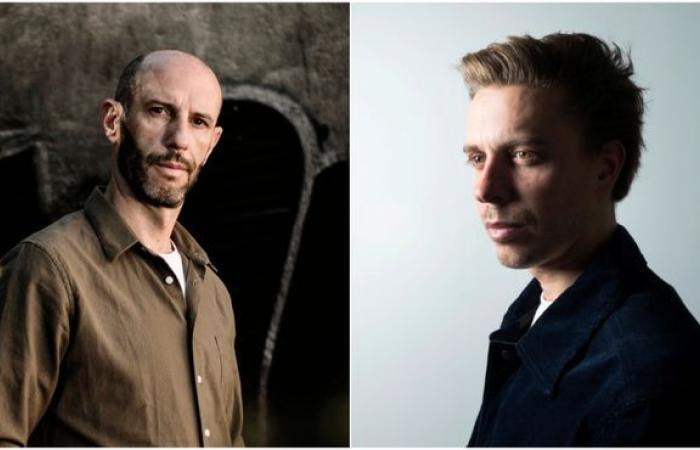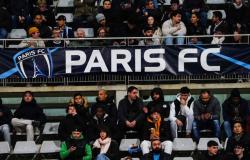Two journalists, two Albert-Londres prizes and two extraordinary courses. Philippe Pujol and Victor Castanet talk about their paths to independence, their profession and the milestone they took to write a book. From the investigation that moves the lines to the hard-hitting and raw style… Crossed perspectives.
“I'm a degun, the degun of a newspaper that's dying. I'm not even in division 2, I'm in division 3 football and they give me the golden ball.” This is how, with a beautiful Marseille accent, Philippe Pujol sums up what he felt when he won the prestigious Albert-Londres prize in 2014. Eight years later, it is Victor Castanet's turn to be rewarded with the same distinction.
premium Prix Goncourt, relocation of France Inter… The four things to know about the Brive Book Fair 2024
“It made me very happy to belong to this collective of great, passionate journalists who are real field journalists,” he assures.
The click
The terrain is what drives these two. It was during a two-week mission to Algeria in 2014 to cover the fourth re-election of Abdelaziz Bouteflika that Victor Castanet became aware of what most closely resembled what he wanted to do.
“Being in the field, being immersed… I have the impression of giving a voice to people who don't have the opportunity to have it. And of having a real use. There, my job takes everything its meaning.”
empty (empty)
Philippe Pujol, then a news item for the daily newspaper The Marseillaiseis at odds with a new police prefect, appointed by Nicolas Sarkozy. We are in 2011. “Alain Gardère is a sort of film caricature, megalomaniac, almost crazy. He treated me badly once, because I worked for a communist newspaper. I said to myself (always with the accent): ' you treat me badly, I'm going to make you miserable.” The journalist investigates and releases information almost daily on the new police boss who will later face justice. He ended up being banned from Évêché, the central Marseille police station. “It's classy! That's where there's a turning point. I'm a fairly classic news item. I have a report that's 80% police, 20% field.” He finds himself overnight cut off from the information provided by the authorities.
Receive our leisure newsletter by email and find ideas for outings and activities in your region.
“So I go totally on the side of gangsters, of banditry. I switch to journalism where I reverse things. I realize that it's ten times better. And I start doing what will bring me to the prize Albert-London.”
empty (empty)
Independence. Returning from Algeria, Victor Castanet said to himself: “now no one will tell me what I should do, how I should do it. I have started to be independent.”
Philippe Pujol, winner of the 2014 Albert-Londres prize, and unemployed
660 kilometers from Paris, La Marseillaise, in great difficulty, “liberates” Philippe Pujol after winning the Albert-Londres prize for his series Shitty neighborhoods. “When you have the Golden Ball, you have almost all the Ligue 1 teams open to you, even the Champions League. In fact, I don't go there. I play solo. “
The book
These two will write for newspapers or magazines on a “freelance” basis. “When I saw what they were paying… It’s a joke,” says Philippe Pujol. “Forget it, I’m not going to work for a magazine.” That's said. For him, the book is the means of his independence. He also comes there driven by a very personal reason.
“My father dreamed of being a writer. He got sick. So I wrote as many books as possible so that he had time to read them. Which explains why I wrote seven books in five years.”
empty (empty)
Burnt, the monster's childrenpublished by Julliard, is his eighth book.
Victor Castanet's grandfather was also a writer. “I was very close to him. He gave me a curiosity about the world and current events.” Alerted by Laurent Garcia, a nursing executive, he began to investigate the Orpea nursing home in Neuilly, “one of the most expensive in France”. Victor Castanet then discovered that “all of the group's nursing homes are suffering from practices of cost optimization, rationing and misappropriation of public money”.
Why the Goncourt Prize is an incredible machine for making millions
The scandal is immense. The system is complex. “There is a story to tell. To write a book, it is not enough to have a lot of information, you also need to have a story, a beginning, a middle, an end, a narrative axis. There, I I felt like there was real narrative power and that it was worth a book.” The Gravediggers published on January 26, 2022, by Fayard.
Their opinion
“Victor, he is going to carry out an investigation which has the power to change things, believes Philippe Pujol. Crèches, retirement homes, these are closed spaces, and which directly affect people's daily lives. We all have children and We'll all be old, even though we don't all have child dealers.”
Victor Castanet responds: “The subjects he deals with and mine are essential to deal with. It is more difficult to reach the national media, to make the news for weeks, because these are subjects which affect fewer people, which affect the poorest, the most miserable… And sometimes, we don't want to see them. But it's also our job to show what we don't want to see.
For the author of Ogresthe books written by journalists are far from all being good but “Philippe, he has a very beautiful pen. He has a real style. Very often, we underestimate that in our profession. He has a real singularity. He knew restore its letters of nobility to this work of localization He knew how to sublimate the work of localization through his style, through his very human outlook, without judgment.
Emilie Auffret






